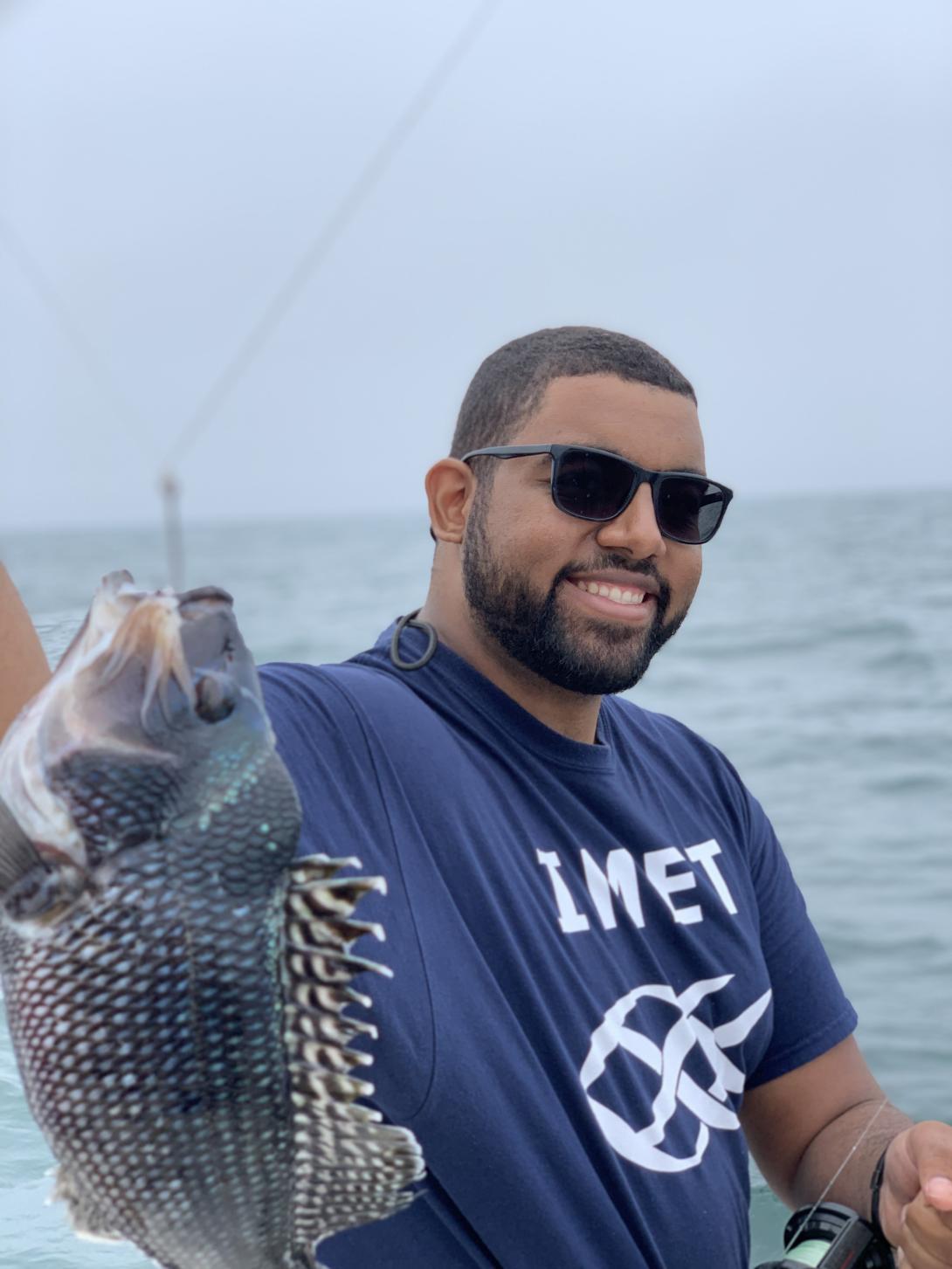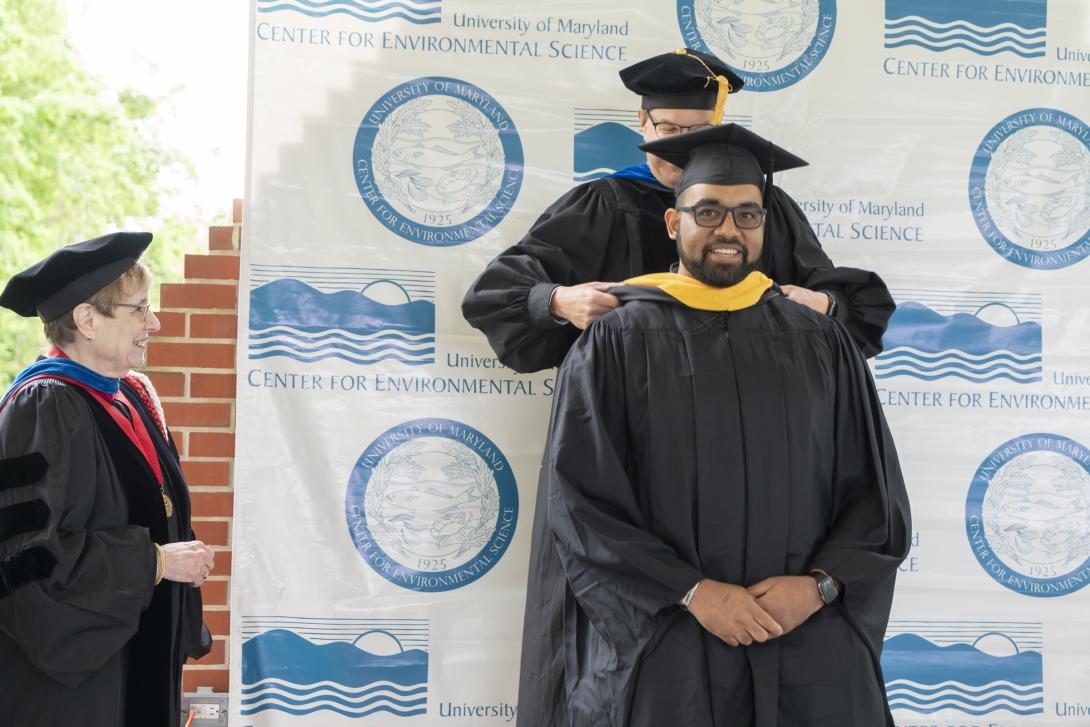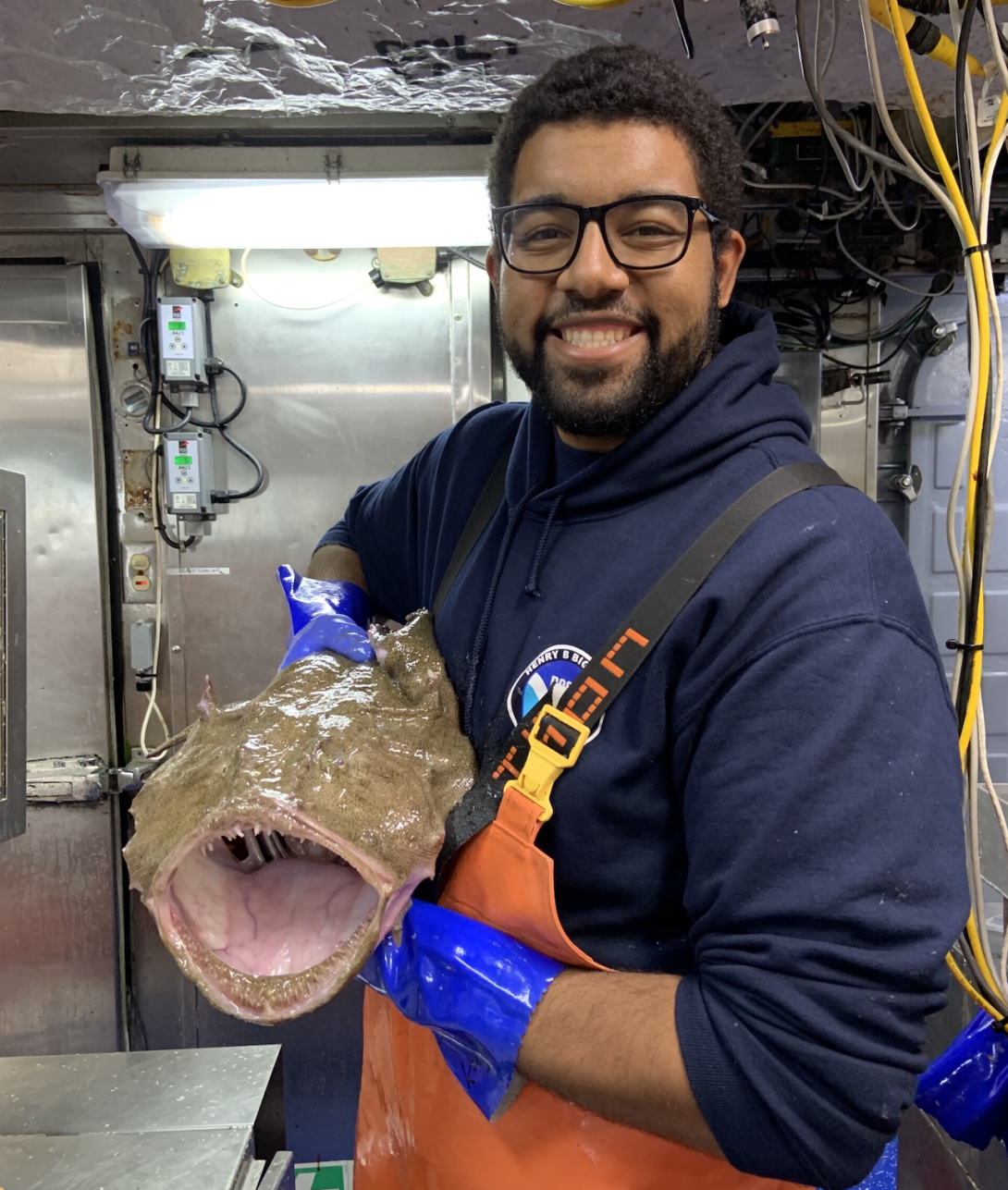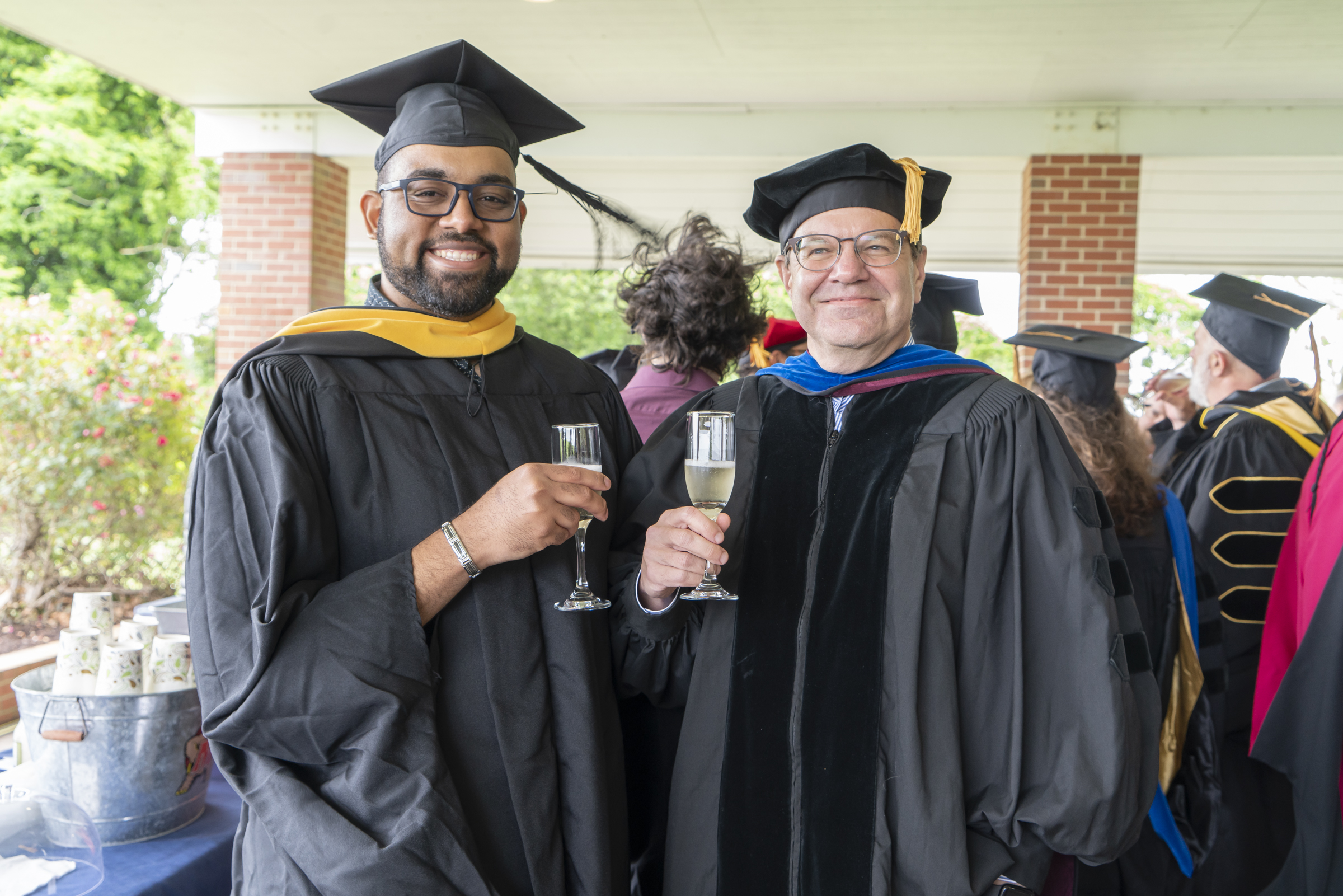Ben Frey: Intern to Graduate Student to NOAA Knauss Fellow

As we welcome in the month of June, we also welcome a new group of interns to IMET for the IMET Summer Internship Program. This program provides opportunities for students from underrepresented backgrounds in science to get hands on research experience in the fields of marine and environmental science. The Internship Program represents a recruitment tool for us to bring students from underrepresented groups into our graduate program as LMRCSC fellows. Seeing all these bright new faces sitting in IMET’s Board Room reminds us of a student who sat in their very place not too long ago. A student who not only completed IMET’s Summer Internship but recently graduated from one of IMET’s partner universities, the University of Maryland Center for Environmental Science (UMCES), with a graduate degree in Marine Estuarine Environmental Science, supported by an LMRCSC Graduate Fellowship.
Let’s go back to summer 2018, IMET’s Summer Internship is just starting, and we are welcoming a new round of interns… enter Ben Frey. Ben had recently graduated from Morgan State University where he had followed a pre-dentistry track before being introduced to urban stream biology. Ben was looking forward to his summer work at IMET and excited to learn more about environmental science. Little did he know that this internship would lead him down a path that would consume the better part of his next four years.
On Friday, June 22, 2018, Dr. Dave Secor visited IMET to speak with the summer interns. Dr. Secor is a faculty member at the University of Maryland Center for Environmental Science’s Chesapeake Biological Laboratory where he studies life history and migration of fishes. During this session, Dr. Secor gave a presentation entitled, “One fish, two fish, old fish, new fish”. This presentation focused on the methodology used to determine the age of various fishes and why this is important for fisheries management. We were excited to see a couple of students stay after the conclusion of the session to speak more with Dr. Secor, one of these students being Ben.
At the time, we didn’t understand how much of an impact this session had on Ben, but we soon found out. Just a week later, Ben was invited to Dr. Secor’s laboratory where he received and accepted an offer to join the Secor lab in the fall as an UMCES graduate student, supported by an LMRCSC Graduate Fellowship from UMCES-IMET.

Fast forward to May 2022, the wind is howling across the Chesapeake Bay as we watch Ben take the stage to be hooded at UMCES Commencement. Ben completed his master’s degree in Dr. Secor’s lab where his thesis focused on, the very topic Dr. Secor presented in his talk “One fish, two fish, old fish, new fish”. Ben’s research was dedicated to the development of a new method to accurately age fish, using lasers and analytical chemistry. This research helps fisheries managers understand more about their target fish and ensure sustainable fishing procedures are put in place.
When asked about Ben, Dr. Secor said, “Ben and I first met during a visit I made to discuss research careers in fisheries science with the IMET Summer Interns. It was clear we had quite a lot of shared interest in fisheries and environmental science and conservation, and I was pleased that he accepted my invitation to join our lab.” Dr. Secor and all of us at IMET are incredibly excited for Ben, he has been awarded a prestigious 2022 John A. Knauss Marine Policy Fellowship where he will be working in NOAA’s National Ocean Service’s Marine Debris Program.

It's now June and we are closing out the second week of IMET’s summer internship. With Ben on our minds, we decided to reach out and see what he thought of his journey from Summer Intern to Graduate Student to Graduate. Ben shared his gratitude for Ms. Mary Catherine Bunting and The Bunting Family Foundation who provided generous support for the 2018 IMET Summer Internship saying, “The IMET Summer Internship showed me I could have a future in environmental science and provided the foundation for all my success as a graduate student.”
Congratulations to Ben Frey and thank you to Ms. Mary Catherine Bunting, The Bunting Family Foundation, and all the generous donors who continue to make IMET’s Summer Internship possible. When sharing about Ben’s journey, Dr. Dave Secor said, “The IMET summer internship program clearly provides a pathway for HBCU (historically black college or university) students to enter graduate degree programs and pursue careers as environmental scientists.” Looking at our 2022 interns we can’t help but wonder where they will go from here. Whether they dive deeper into marine and environmental science like Ben or explore other paths, we are excited to be a part of their summer and their scientific journey.
